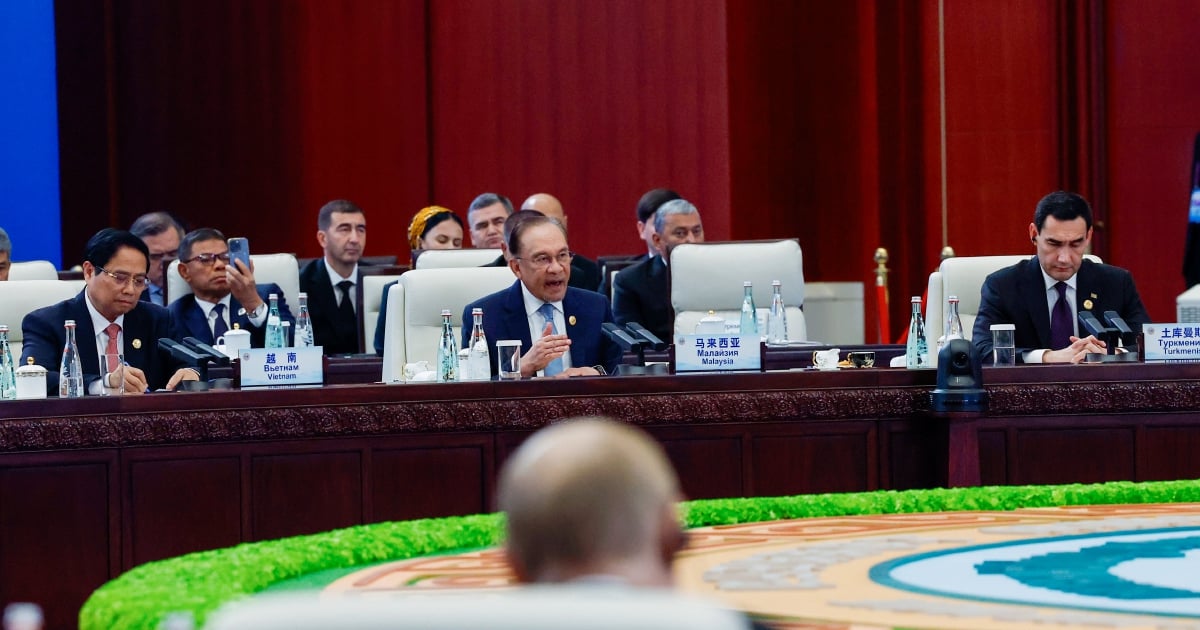IN geopolitics, it is the wisdom of a fool to disregard the juxtaposition of regional security concerns with economic ties, and this mantra takes on added significance for smaller nations as they forge strategic linkages with larger entities.
This is because economic interdependence fosters stronger ties and serves as a bulwark against conflicts while driving national resilience, spurring better informed policymaking and more crucially, reinforcing multilateralism and regional cooperation and stability.
In this vein, Prime Minister Datuk Seri Anwar Ibrahim’s participation in the Shanghai Cooperation Organisation (SCO) Plus Summit in Tianjin signified a watershed moment in Malaysia’s regional and global positioning.
To begin with, his inaugural appearance at the summit was rather unusual: after all, Malaysia is not a member, dialogue partner, or even an observer of the SCO.
And yet, Malaysia’s presence was a clear signal of how a medium-sized trading nation is seen as a bridge-builder in a fractured world.
In a gathering dominated by Eurasian giants, Anwar‘s intervention carried gravitas because it was rooted in principle, clarity and a call to restore trust in a global order that is fast breaking apart at the seams.
His remarks struck a deep chord.
“We are living through a great unravelling,” he said, pointing to eroding trust and fragile, antiquated institutions that now strain under pressure.
For a summit conceived to uphold regional stability, his words resonated widely.
The SCO has long been framed as a counterweight to Western-led institutions, yet Malaysia’s message was not about bloc politics.
Underlying his remarks was a consistent thread: the defence of multilateralism and rebuilding trust among nations with the stress on cooperation in trade, investment and disaster relief, and accelerating energy transition. Crucially, he emphasised that regional organisations matter more than ever.
Asean and the SCO, though different in form, share a founding conviction: sovereign nations, by working together rather than against one another, can shape a safer, more prosperous future.
That message was amplified because it came from outside the SCO’s formal orbit. Malaysia, untethered by institutional membership, reminded participants that inclusivity matters and that trust is built by engagement not by exclusion.
In perhaps the boldest part of his remarks, Anwar called the tragedy in Gaza as the starkest example of the impotence of global institutions to stop genocide, mass atrocities and violations of international law.
For decades, the promise of “never again” has rung hollow. The ongoing suffering in Gaza, with thousands of children, women and men killed, exposes the moral bankruptcy of global governance structures.
President Xi Jinping’s global governance initiative is critical, not just because it advocates for a multipolar world, but more importantly it also calls for collective responses to global challenges.
The paralysis of the United Nations Security Council, held hostage by the veto of great powers, demonstrates how outdated frameworks can perpetuate injustice rather than prevent it.
For Malaysia, a country that has consistently spoken up for Palestine, this was also a reaffirmation that peace cannot be divorced from justice.
At the Malaysia-China High Level Business Dialogue in Beijing, Anwar’s focus shifted to the economic realm.
His message was pragmatic: Malaysia and China must deepen partnerships amid global fragmentation.
He pointed to the dangers of protectionism, sharpened by United States tariffs, which threaten the principles of openness that underpinned Asia’s rise.
The remedy, he argued, lies in building coalitions that uphold stability and fairness.
Malaysia’s transformation agenda offers fertile ground for collaboration. The National Semiconductor Strategy complements China‘s ambitions in high-tech industries.
Anwar also drew attention to the looming challenge of energy. Asia’s demand for energy is growing, and the rise of artificial intelligence (AI) will multiply that by leaps and bounds.
For Asia, a region rich in resources yet vulnerable to climate change, the choice is stark. On the one hand, the region needs AI as a driver of growth and innovation; on the other, it cannot allow the technology to deepen environmental strain.
At the same time, the transition to clean energy must also be equitable, ensuring no community is left behind.
It is easy to overlook the quiet significance of Malaysia’s role at the SCO Plus Summit. This was not an Asean Summit. Nor was Malaysia present in any formal capacity but as a guest.
In an age when middle powers often struggle to be heard, Malaysia’s call gained traction as a voice of moderation, of a country trusted to speak truth to power without rancour.
The SCO invitation reflected Malaysia’s ability to act as a bridge, not only between Asean and Eurasia, but also between competing narratives of global order.
Anwar’s China visit and SCO intervention must be seen as part of a broader strategy to place Malaysia at the centre of Asia’s unfolding story. It is a strategy rooted in history but attuned to the future, blending principled stands with pragmatic cooperation.
The world may be living through a great unravelling, but Malaysia has chosen to act as a bridge: for global peace and security, for fairness in trade, for resilience in energy, and for multilateralism in a time of division.
Malaysia’s participation at the SCO has shown that when it speaks with conviction, the world listens. The challenge is to turn words into outcomes, to prove that trust, once earned and honoured, can endure beyond the tempests of our times.
The writer is chairman of the Institute of Strategic and International Studies Malaysia
The views expressed in this article are the author’s own and do not necessarily reflect those of the New Straits Times
© New Straits Times Press (M) Bhd






